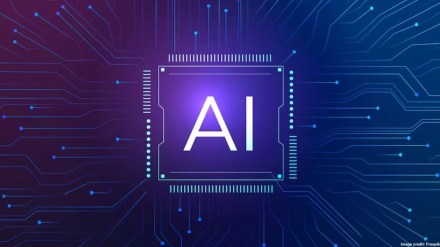While artificial intelligence (AI) is believed to play a key role in development of society, many seem to be warning about its potential long-term implications. In recent developments, Elon Musk, who owns Twitter, and The White House warned about how AI’s growth can shape into a threat for human intelligence, with regard to safety, democracy and privacy.
According to a survey conducted by Spiceworks Ziff Davis, a software company, 49% of 1,400 technology professionals belonging to Latin America, Europe, Asia, and North America stated that AI can result in human extermination. The company further mentioned that 55% of respondents spoke on AI playing a role in privacy concerns, and another 51% upheld its impact on information technology (IT) jobs. “AI has potential to be both beneficial and challenging to humanity. While Musk and the White House have expressed concerns about threats of AI, it’s important to understand that these concerns stem from the potential misuse or consequences of AI technology,” Sanjay Kaushik, managing director, Netrika Consulting, an integrity management firm, told FE Blockchain.
Market research has projected that AI can be channelled in cyber-attacks and can disrupt job opportunities. Insights from Bernard Marr & Co, a consulting company, highlighted that AI carries ability to be utilised for social manipulation and enhance misinformation-oriented sources, with example being 2016 US Presidential Election. The company has also portrayed how AI can lead to creation of deepfakes of real people which can harm a person’s confidential information. Built In, a startup-based platform, mentioned AI-backed risks can involve socioeconomic inequalities, market volatility and weapons automatisation.
However, market researchers have found that AI and human intelligence coexistence can be achieved through development of regulations. As per APAC Entrepreneur, a support organisation, AI-backed human intelligence can create opportunities in sectors such as science, law, gaming, business, among others. For example, ChatGPT’s, an AI chatbot created by OpenAI, betterment of natural language processing (NLP), to improve interactions between computers and human language, can benefit activities such as sentiment inspection, language translation, and speech recognition.
“A co-existence between AI and humanity could be expected, if AI models can be developed. An AI system that can engage in natural language conversations and adapt to human behaviour and emotions could help to bridge the gap between humans and machines, leading to acceptance and collaboration,” Arpit Sharma, senior manager, technology research and advisory, Aranca, an analytics firm, said.
Moreover, future predictions indicate that AI and humanity’s coexistence can help address long-term global problems. As stated by Simplilearn, an online learning platform, AI’s influence in workplaces can enhance productivity which can be correlated with employees’ satisfaction levels. AI’s development of business technologies can be a boon to the healthcare sector, with regard to operating expenses and fund savings.
“Focusing on developing AI that is in line with human values and is capable of collaborating with humans can be crucial to ensuring the future coexistence of humanity and AI. The future of AI and human coexistence should be in the hands of people,” Vatsal Rajgor, co-founder and CEO, DigiMaze, a performance marketing agency, concluded.
